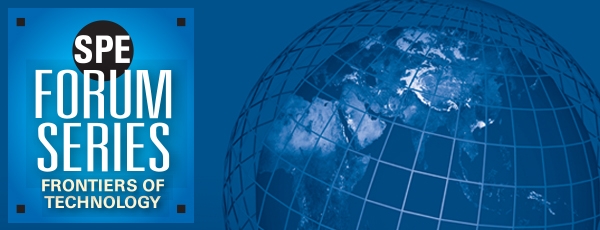Agenda
Monday, February 10
There is little doubt that digital transformation is going to change the way we do work in 2030. Transformation is expected to add billions of dollars in value, from data to modeling to contracting to health, safety, and environment (HES).
Will we finally have data that is perfect and available at our fingertips? Will machines build the reservoir model, leaving petrotech experts to choose and quality control the best models? Will blockchain eliminate the need for conventional contracting processes? Will robotic process automation (RPA) replace repetitive strain injury (RSI)?
This session will set the stage for an exciting 4.5 days of discussion on what is to come.
Ninety percent of data across the globe has been generated in the last few years. All industries are undergoing a digital transformation, generating mass amounts of data. The oil and gas industry has also seen a significant increase in the volume and variety of data generated from all aspects of the E&P lifecycle. Today, a single high-end rig would have 30,000 sensors, and a well could generate 10 terabytes of data per day. This pace is only accelerating with the implementation of the internet of things (IoT) devices, generating even more data from more sources. Data, both structured and unstructured, is being compiled, consolidated, and analyzed to reveal valuable insights into various operations and processes. Capturing the correct, high-quality data is the key foundation for any organization looking to streamline their business and capitalize on the insights generated. Some questions to address in this session are:
- How do we capture the correct high-quality data?
- Are we capturing the right context and enough parameters at the right rate to be able to describe and characterize the underlying system or process fully?
- Are we then able to easily analyze this data to generate meaningful insights leading to process improvement or new product offerings?
- What are we missing and how to get there?
Tuesday, February 11
Traditionally, in the surface and subsurface domains, a key role of a data platform is to collect structured and unstructured data from a range of internal and external sources and then integrate and store that data. Many systems have a layer of management, governance and security imposed to ensure adherence to industry and company-specific standards. The data platforms of today and tomorrow are evolving quickly, driven by technologies that are changing our understanding of what is possible, specifically the application of artificial intelligence (AI) and machine learning. These technologies have the potential to change the way we derive and quantify the value we can expect from our data.
Several questions to discuss in the session would be:
- How does the drive for openness and seamless connectivity between data and application platforms enable significant cost savings, risk reduction and operational simplicity that are expectations of the modern data platform?
- In a time of exciting developments, is the future open to be shaped as our organizations determine, or is this vision of open cooperation and alignment unrealistic in a highly competitive industry?
By adopting the most advanced computing technologies, subsurface characterization, modeling, and simulation have traditionally been at the leading edge for the oil and gas industry. Not surprisingly, new data-science tools have already been successfully leveraged to improve the efficiency of standard workflows in seismic processing and interpretation, as well as reservoir characterization, modeling, and simulation. Examples of the new tools are those for structural and stratigraphic interpretation and data-informed reservoir forecasting and optimization. The long-term challenge is to look beyond improving the efficiency of current workflows by developing new workflows that will improve the quality, reliability, and speed of these workflows. Such improvements will allow these tools to have a bigger and more immediate impact on the day-to-day as well as long-term operational processes. To achieve this goal, we need to integrate the new data-centric methods with our in-depth understanding and numerical modeling capabilities of the geology and physics of hydrocarbon basins, wave-propagation phenomena, and reservoirs systems.
Wednesday, February 12
Advancements in data analytics technologies such as artificial intelligence and machine learning are becoming an essential component of day-to-day business by improving the way the oil and gas industry operates. To enable and maximize the use of these emerging technologies, a robust data foundation is required.
This session will explore the future of the digital transformation, and the use of advanced analytics applications, such as artificial intelligence, machine learning, and blockchain to create an integrated business model in the surface, operations, and sustainability.
Expectations around digitization due to the rapid transformation of E&P companies is increasing. Integration of the workflows between various project elements and/or disciplines still poses challenges for various reasons. Some workflow challenges are often related to software, sensors, data availability, or relevant proxies (even those generated using machine learning).
In this session, we will examine how all of these components can be united to optimize value in an integrated manner.
Thursday, February 13
This session will bring together the current business models employed by different organizations from service companies to operators, and will examine them to implement innovation across the ecosystem. The participants will identify potential new models and any needed or required collaboration between the different stockholders to accelerate digital transformation.
Digital transformation will lead to new ways of performing work across technical, operational and commercial fields. In the future, the types of jobs and the number of jobs available will change as efficiencies are realized. The existing capability will need to be reskilled or upskilled, whilst new capability will need to join the industry to help create the digital transformation.
Friday, February 14
This session will bring together what we learned over the past few days. A distinguished panel will help identify potential impediments and prioritize actions required to make digital transformation a success.

